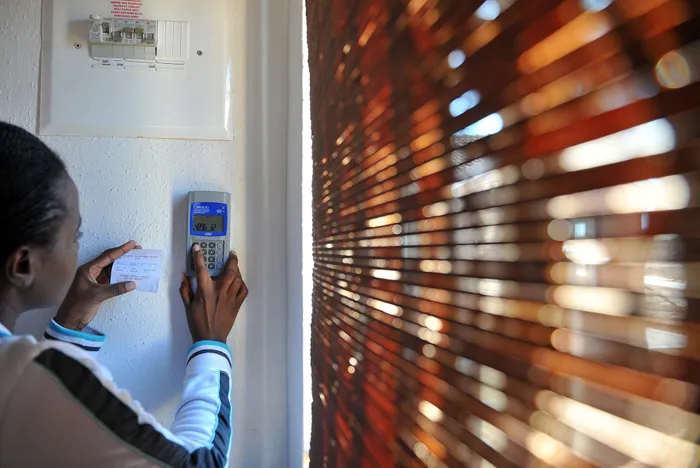As the solar revolution continues, expect more tariff hikes like Joburg’s

The monthly fixed prepaid electricity charge of R200 City Power introduced is just the latest symptom, says the author. Picture: Matthews Baloyi/Independent Newspapers
By Jon Kornik
It is no secret that load shedding has kick-started the solar revolution in South Africa. As it gathers momentum, it is placing strain on a tariff system designed for the past. The monthly fixed prepaid electricity charge of R200 City Power introduced is just the latest symptom.
South Africa’s electricity tariffs are designed to be progressive. Our “incline block tariffs” ensure that the more electricity you consume, the higher the rate you pay. For instance, in Johannesburg, the first 350 kWh in a month costs R2.36 per kWh, the next 150 kWh costs R2.71 per kWh, and beyond that, it’s R3.09 per kWh. The funds are then used to cross-subsidise free basic electricity for poorer households.
However, the advent of solar energy is challenging the model. Wealthier households are increasingly installing solar panels, reducing their reliance on the grid during the daytime but depending on it during the morning and evening peak times when demand is high and the sun low.
The shift poses a significant problem for municipalities like City Power, who buy electricity from Eskom on Time of Use tariffs. The tariffs mean that peak electricity is more expensive than daytime or night-time electricity, resulting in them reselling peak electricity to homes at a loss in winter. As a result of the solar shift, City Power is selling a smaller proportion of electricity during the profitable daytime and more during the loss-making peak times. With electricity accounting for 25% of the City of Joburg’s revenue, the trend threatens broader service delivery.
In response, City Power has increased the fixed monthly charge for prepaid electricity by R200. This makes sense for a couple of reasons. First, even if you are using the grid as a backup for your solar system, City Power has real costs to maintain the network for you. Second, if the city rather increased variable tariffs to cover the costs, solar would become cheaper than grid electricity even sooner, causing them to lose customers at an accelerating rate. By raising fixed charges, a unit of grid electricity remains competitive for a little while longer.
However, the move is regressive. The fixed charge disproportionately burdens those who can least afford it – all in response to a problem caused by wealthier households who went solar. The solution is not to force an outdated tariff structure onto a new energy reality. Instead, we need to transform solar-equipped homes from a threat to municipalities into the saviours of the grid which they could well be.
To make this a reality, we need smart changes in tariff structures – not to slow down the inevitable but to incentivise investments in the right technologies. This could include paying prosumers to sell services to the grid and implementing time-of-use rates for anyone with an inverter. The great news is that the technology to make this transformation benefit everyone – the utility, prosumers and the less wealthy who remain entirely reliant on the grid – exists; it is all about co-ordinating the load from batteries and home appliances.
By embracing the changes, we can ensure that the solar revolution benefits everyone, not just those who can afford it.

Jon Kornik is the CEO of Plentify, with a background in energy, technology and finance. Previously, he led Google's energy business in Africa, overseeing the funding of major wind and solar farms and developing technology solutions for energy expansion.
BUSINESS REPORT